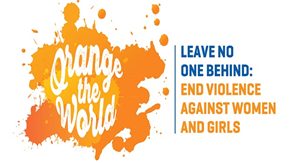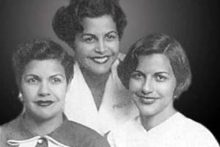
Today, November 25th, is International Day for the Elimination of Violence against Women and Girls, which is followed by the 16 Days of Activism Against Gender-Based Violence, through to 10 December.
The theme of this year’s global campaign – leave no one behind – is timely, given the global outcry against sexual harassment and male violence against women (which we wrote about earlier this week). It feels like we’re entering a time of significant change, as more women are feeling empowered to speak out about abuse, and more political leaders make statements which suggest they reject misogyny, inequality and violence against women in all its forms.
But it’s easy to forget that women have been speaking out for decades, about male violence against women as a manifestation of historically unequal power relations between women and men. It’s also too easy to only hear and take notice of those who speak the loudest, whilst failing to remember, or listen, to women whose voices are less likely to be heard, or even actively erasing women’s experiences of violence and abuse and our demands for change.
Most people who mark 25th November now do so by referencing ‘White Ribbon Day’ to end domestic abuse. White Ribbon charities around the world originated from the 1991 campaign by a group of white Canadian men after the December 1989 massacre by Marc Lépine of 14 women at the University of Montreal. It is right that men were outraged enough to campaign to ensure men take more responsibility for reducing the level of violence against women. But this should not erase the origins of this day of activism.

The 25th November was first designated a day to end Violence Against Women in 1981, by women of colour, at the Feminist Conference for Latin American and Caribbean Women in Colombia. It originated to commemorate the murder in 1960 of three political activist sisters in the Dominican Republic – Patria, Maria Teresa and Minerva Mirabel. At that conference, women linked and denounced all forms men’s violence against women from domestic violence, rape and sexual harassment to state violence including torture and abuse of women political prisoners.
It’s vital that women’s experiences aren’t erased, or go unheard – women’s voices need to be central to any commitments made by the state to end male violence against women. In Wales, women have already called for 10 key actions to be taken by governments, as set out in our national strategy. These include preventing violence from happening in the first place, sufficient funding for specialist services in every area, safe child contact for children after parental separation in cases of domestic abuse, and equal access to services and the financial resources to live independently irrespective of immigration status, so that no woman is left behind.
If you believe no woman should be left behind, and that it’s vital we hold governments to account for delivering on women’s demands for justice and for freedom from abuse, join us today. Help us speak out against gender inequality, against male violence against women as the most extreme form of discrimination, and to create a world where all women and children live free from fear of violence and abuse.

